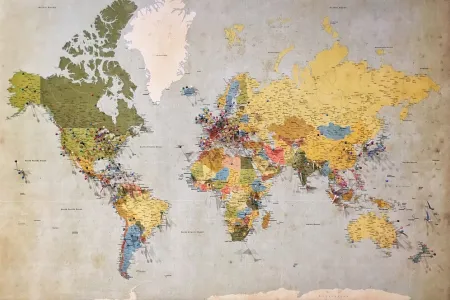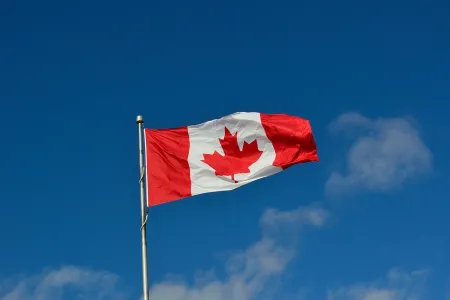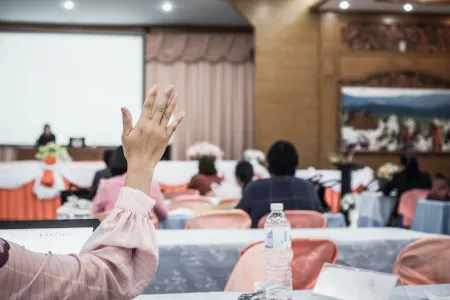Displaying results 11 - 20 of 1073

Cleo Paskal: More India and Less China, Please
The world needs more India and less China, was the conclusion reached at the third Raisina Dialogue hosted by the Observer Research Foundation and India’s Ministry of External Affairs in New Delhi from 16 to 18 January 2018. In an article for The Sunday Guardian, Cleo Paskal noted decisionmakers’ willingness to engage with India as a stabilising regional power, thus confirming the entrenchment of the Indo-Pacific, as opposed to the Asia-Pacific, as a region in geopolitical calculations. Cleo Paskal is a 2015 Trudeau fellow, adjunct faculty in the Department of Geopolitics at Manipal University, and an associate fellow at Chatham House. Read her article here.

Marina Sharpe: Embracing the Complexity of Mixed Migration
What is “mixed migration,” and why does it matter in the international legal migration regime? Mixed migration can describe both the complex composition of migration flows – refugees and other migrants often travel together – as well as individuals’ mixed motivations for migration. In her article “Mixed Up: International Law and the Meaning(s) of ‘Mixed Migration’,” published in the Refugee Survey Quarterly on 29 January 2018, Marina Sharpe argues in favour of a complexity-based understanding of the concept of mixed migration that enhances the concept’s utility in international law. By contrast, understanding “mixed migration” solely as a description of migrants’ individual motivations would provide ground for populist, anti-immigration discourses to flourish. Marina Sharpe is a 2011 Trudeau scholar and a Visiting Fellow at the Centre for Human Rights and Legal Pluralism of McGill University. Read her article here.

Adelle Blackett: Teaching Critical Race Theory and Slavery in Faculties of Law
From 2014 to 2016, law students at McGill University learned about critical race theory and slavery and the law in ad hoc courses taught by Adelle Blackett. Blackett’s article, “Follow the Drinking Gourd: Our Road to Teaching Critical Race Theory and Slavery and the Law, Contemplatively,” published in the fourth and final issue of the 2017 McGill Law Journal, argues that courses like these are integral to “the collective project of cultivating jurists who live rooted, multilingual, and layered lives in law.” Blackett nevertheless concluded that much “homework” remains to be done towards this collective project: institutions must undertake a redemptive work of transforming themselves from within. Adelle Blackett is a 2016 Trudeau fellow, professor of law and William Dawson scholar at McGill University. Read the full issue here (access restricted).

Bessma Momani and Jillian Stirk: A Message to Trump from Norway
Like Canada, Norway faces an aging population; like Canada, Norway could benefit from more immigration and diversity; like Canada, Norway seeks to maintain its social security system in the face of these demographic challenges. In an opinion article for The Globe and Mail on 3 February 2018, Bessma Momani and Jillian Stirk suggested ways that Canada and Norway could make the most of each others’ strengths. The authors noted that despite President Trump’s suggestions on 11 January 2018, Norwegians may not be interested in outward migration to the United States or anywhere else, but they could still do well to learn from an immigration system like Canada’s that gives immigrants a path to citizenship. Canada, for its part, could learn from Norway’s successes with gender equality. Bessma Momani is a 2015 Trudeau fellow and a professor in the department of political science and the Balsillie School of International Affairs of the University of Waterloo. Jillian Stirk is a 2015 Trudeau mentor and a former ambassador of Canada to Norway. Read their article here.

Bernard Richard and Mary Ellen Turpel-Lafond: Federal Funding for Indigenous Child Welfare
In January 2016, the Canadian Human Rights Tribunal found that the federal government discriminated against Indigenous children by underfunding child welfare services. On 1 February 2018, Ottawa committed to covering the costs of Indigenous child welfare agencies from the ruling onwards. Bernard Richard and Mary Ellen Turpel-Lafond were cited in an article published by The Globe and Mail the same day. “What it means, is resources for family support, family preservation, prevention – the types of things that [agencies] have been crying out for," commented Richard. More than that, the government’s commitment will allow agencies to keep families together where there used to be an “incentive for taking children into care,” he concluded. This said, Mary Ellen Turpel-Lafond added a word of caution: "Without a clear framework, with outcomes and co-ordinated efforts to plan, monitor and deliver excellent services, the area of Indigenous child and family services will have deep vulnerabilities.”
Bernard Richard is a 2012 Trudeau mentor and BC's representative for children and youth. Mary Ellen Turpel-Lafond is a 2011 Trudeau mentor, the former BC representative for children and youth, and a lawyer and children’s rights advocate. Read the article here.
Bernard Richard is a 2012 Trudeau mentor and BC's representative for children and youth. Mary Ellen Turpel-Lafond is a 2011 Trudeau mentor, the former BC representative for children and youth, and a lawyer and children’s rights advocate. Read the article here.

Janine Brodie: Contemporary Inequalities and Social Justice in Canada
In the wake of the 2008 economic crisis, income uncertainty, rising wealth disparities, and exclusionist policies have become the new normal. In Contemporary Inequalities and Social Justice in Canada (University of Toronto Press, 2018), 2010 Foundation fellow Janine Brodie curated the work of renowned social scientists Alexa Degagné, Judy Fudge, Grace-Edward Galabuzi, Hayden King, Judy Rebick, David Robichaud, Meenal Shrivastava, and Malinda Smith. Together, they approached social justice from the perspectives of race, youth, precarious workers, Indigenous peoples, and the LGBTQ community, emphasizing different ways of thinking about and addressing contemporary social inequalities and insecurities in Canada. Ultimately, Brodie argued that those “spaces of in-between-ness” created by crises “call for a renewed and expansive social justice agenda.”
Janine Brodie is a 2010 Foundation fellow, a distinguished professor at the University of Alberta, and the Canada Research Chair in Political Economy and Social Governance. Browse the book here and order it here.
Janine Brodie is a 2010 Foundation fellow, a distinguished professor at the University of Alberta, and the Canada Research Chair in Political Economy and Social Governance. Browse the book here and order it here.

Sara Angel: Addressing the Gaps in Germany’s Holocaust-Era Cultural Restitution
Max Stern was a renowned Jewish art dealer who fled Düsseldorf for Montréal after the Gestapo persecuted him. In an article published in Art News on 2 February 2018, Sara Angel digs deeper into the scandal that rocked the art world last November, when Düsseldorf’s mayor cancelled an exhibit about Stern after Stern’s estate laid claim to several pieces hanging in the Stadtmuseum. In this article, Sara Angel shows that the wounds of Holocaust-era cultural theft are far from healed – and that when it comes to restituting priceless pieces at the risk of them leaving the public domain, curators grapple with a difficult dilemma. Though no date for the reinstated show has been determined, the exhibition was planned to travel to Haifa, Israel, before reaching the McCord Museum in Montreal in 2019. Sara Angel is a 2012 Trudeau scholar and a PhD student at the University of Toronto in the Department of Art. Read her article here.

Ann Dale's New Book on Sustainable Community Development
What is your story on climate change? How do you engage with your community and environment? In her new book, Edging Forward: Achieving Sustainable Community Development (published 7 February 2018, Fernweh Press), Ann Dale evocatively looks back on her personal and professional experiences to retrace her path in sustainable community development. Roughly 17 years after publishing At the Edge, Dale focuses on the power of stories in shaping communities’ ability to transform human development. As Lieutenant Governor of Ontario Elizabeth Dowdeswell commented, it was “no small feat to articulate such interrelated themes – story, science, and the personal.” Ann Dale is a 2004 Trudeau fellow and a professor with the School of Environment and Sustainability at Royal Roads University.
Click here for more information. Order a paper or e-copy of Ann Dale’s most recent book.
Click here for more information. Order a paper or e-copy of Ann Dale’s most recent book.

Rebecca Sutton: Experiential Learning in International Humanitarian Law
Should humanitarian assistance be guided by national security concerns or should it focus on saving lives? This is the dilemma that Rebecca Sutton and students at the University of Western Ontario Law School grappled with in 2017, as they re-enacted the negotiations that determined the United States’s response to the 2011 famine in Somalia. In her introduction to a series of posts published in the Harvard Law School Case Studies Blog on 19 January 2018, Sutton argues that role-play exercises help students to “[take] the law out of the books” and may ultimately “spur [them] to articulate ideas about prospects for reform.” She concludes that, although experiential learning may leave students disillusioned about the humanitarian impacts of international law, it allows them to get at its complexity in practice. Rebecca Sutton is a 2014 Trudeau scholar, a lawyer, and a PhD candidate in law at the London School of Economics. Read Rebecca’s introduction to the series here.

Cleo Paskal: Britain’s New Pacific Presence
On 19 April 2018, the United Kingdom announced it was establishing diplomatic representation in nine countries: Antigua and Barbuda, the Bahamas, Grenada, Lesotho, Samoa, St Vincent and the Grenadines, Swaziland, Tonga, and Vanuatu. In an article published on 21 April 2018 by The Sunday Guardian, 2015 Foundation fellow Cleo Paskal argued that India can learn from the UK’s “low-cost, high-impact, niche pivotal geopolitics.” Though it is a keystone of the Indo-Pacific, India has little to no diplomatic representatives in Pacific island countries. In a later article, published on 24 April 2018 in the Lowy Institute’s Interpreter, Paskal further demonstrated how, from an Oceanian perspective, the British Foreign Office’s decision might be a game changer. Australia and New Zealand’s strategic behaviour, or lack thereof, has let the Oceanic region drift towards China, but the UK, “not as blinded by a short-term economic agenda and with a global perspective, can bring a new layer of Oceania analysis to the Five Eyes.” Paskal concluded that the UK’s increased diplomatic presence, by shifting the strategic focus to regional prosperity and security on the Oceanic islands’ own terms, will benefit all – except China.
Cleo Paskal is a 2015 Foundation fellow, an associate fellow at Chatham House (the Royal Institute of International Affairs, London, UK), as well as adjunct faculty in the Department of Geopolitics, Manipal University, India. Read her Sunday Guardian article here and her Interpreter article here.
Cleo Paskal is a 2015 Foundation fellow, an associate fellow at Chatham House (the Royal Institute of International Affairs, London, UK), as well as adjunct faculty in the Department of Geopolitics, Manipal University, India. Read her Sunday Guardian article here and her Interpreter article here.

